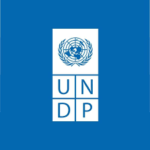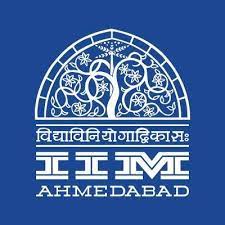
Website UNDP
UNDP in India
UNDP is the UN’s global development network, an organization advocating for change and connecting countries to knowledge, experience, and resources to help people build a better life. UNDP is on the ground in about 170 countries and territories, working with national counterparts on solutions to global and national development challenges.
In programme countries, UNDP supports stabilization, state-building, governance and development priorities in in partnership with the host governments, the United Nations system, the development partners and other partners to help the country to achieve sustainable development by eradicating poverty in all its forms and dimensions, accelerating structural transformations for sustainable development and building resilience to crises and shock.
UNDP has worked in India since 1951 in almost all areas of human development, from systems and institutional strengthening to inclusive growth and sustainable livelihoods, as well as sustainable energy, environment and resilience. UNDP’s programmes continue to fully integrate a global vision for catalytic change with India’s national priorities. With over 30 projects on the ground in almost every state, today UNDP India works to achieve the Sustainable Development Goals (SDGs) by transforming traditional models to do development differently. In a rapidly changing global environment, the work of UNDP and the broader UN family aligns with the Government of India’s new national development vision, India 2030, and builds upon the SDGs. UNDP India’s country programme for 2018-2022 has three major focus areas:
- Inclusive growth
- Environment and energy
- Strengthening systems and institutions
These are supported by a framework of renewed partnerships and blended finance solutions, a pool of financial and technical resources for greater impact and scale, and South-South expertise.
G-20
The G20 is a strategic multilateral platform connecting the world’s major developed and emerging economies. The G20 holds a strategic role in securing future global economic growth and prosperity. Together, the G20 members represent more than 80 percent of world GDP, 75 percent of international trade and 60 percent of the world population.
Starting in 1999 as a meeting for the finance minister and central bank governors, the G20 has evolved into a yearly summit involving the Head of State and Government. In addition to that, the Sherpa meetings (in charge of carrying out negotiations and building consensus among Leaders), working groups, and special events are also organized throughout the year.
The UN System has collaborated closely with the G20 since its inception in the aftermath of the global financial crisis in 2008, providing expertise on economic and development issues at the invitation of successive G20 presidencies. UNDP’s engagement with the G20 has been centred around the implementation of the 2030 Agenda for Sustainable Development and the realization of the G20 Action Plan on the 2030 Agenda.
India’s upcoming G-20 Presidency
Designated by its members as the “premier forum for international economic cooperation”, the G20 plays an important role in the 2030 Agenda for Sustainable Development implementation, including the Sustainable Development Goals (SDGs) and the Addis Ababa Action Agenda (AAAA), by contributing to the provision of global public goods and supporting the integration of low-income and developing countries into a sustainable and inclusive global economy. Given the group’s weight and clout, G20 collective actions are indispensable to advance towards sustainable development for all and leave no one behind.
India joined the troika (represented by the previous, current and subsequent G-20 Presidency) in December 2021 and will assume the Presidency of the G-20 following the Leader’s Summit during Q4 2022. The G20 Secretariat is the organization with the mandate to lead the preparation for the G20 Indian Presidency and manage the G20 Presidency in 2023. For the first time India will chair this group, in what is an unprecedented opportunity to strengthen the country’s engagement with the international community, to further advance the global sustainable development agenda, and to deliver outcomes for the benefit of the global economy, South Asia and India. The G20 secretariat leads the whole-of-government G20 preparations and will conduct the implementation of the G20 2023 Agenda and work programme.
UNDP is looking to onboard a Policy Specialist (G20) (Consultant) who will work closely with the Government of India/ G20 Secretariat on supporting efforts particularly around the 2030 Agenda for Sustainable Development.
Duties and Responsibilities
The primary responsibility of the Consultant is to provide research, policy and coordination support to the G20 Presidency to further align the G20 agenda with the 2030 Agenda for Sustainable Development including supporting the development of input papers, issue briefs, identifying concrete deliverables / outcomes, developing based on guidance from UNDP thematic experts. The Consultant will be placed within the G20 Secretariat, and on a day to day basis coordinating with a focal point from G20 Secretariat. Formally, the Policy Specialist (G20) will report to Advisor, UNDP India Country Office.
Specifically, the Policy Specialist G20 (Consultant) will be responsible for undertaking the following activities:
Taking stock of the background of the assigned G20 Working Group
- Evaluate the work done under previous Presidencies of the G20 in the context of the assigned G20 Working Group / Development Working Group
- Review of India’s G-20 Priorities / desired outcomes as formulated by the G20 Secretariat in the Presidency and / or co-chair note(s) as applicable
Based on guidance from identified UNDP focal points provide support to the G20 Presidency to further Align the G20 Agenda with the 2030 Agenda for Sustainable Development.
- Based on guidance from UNDP focal points, provide support on sustainable development related issues with a focus on international cooperation in various policy areas related to global sustainable development challenges.
- Based on guidance from UNDP focal points provide support on moving G20 sustainable development Agenda forward in an integrated manner.
- In consultation with UNDP’s Policy Unit provide the G20 Secretariat with support to align the 2023 G20 agenda and priorities with the UN agenda, including the UN Summit of the future (September 2023).
- Develop forward-looking analysis on emerging trends and global challenges to develop G20 policy options in relation to the 2030 Agenda implementation.
Supporting planning, preparation and next steps from working group meetings
- Support UNDP team of Senior Policy Advisors/ Specialists to develop background notes, issue notes and briefs, as required for G20 Secretariat based on pre-determined priorities/ action points.
- Supporting the preparation of G20 policy documents and ensure that they are well-aligned with G20 objectives, past G20 commitments, and sustain continuity of the G20 work across presidencies, and further contribute to the 2030 Agenda implementation.
- Develop synthesized take-aways and formulate approach for next steps, as needed
Coordination related responsibilities
- Consultant will be expected to liaise closely with a remote team of UNDP Senior Policy Advisors/ Specialists to solicit timely feedback and comments on issue briefs/ concept notes etc.
- Consultant will be expected to coordinate any in-person visits and virtual interactions by UNDP Senior Policy Advisors, including briefings on discussion points and synthesizing takeaways and next steps.
- Provide support to UNDP Supervisor in any coordination support, as needed, for UNRCO
- Any other tasks/ deliverables assigned by G-20 Secretariat / Supervisor / Senior Policy Advisors at UNDP including support for any side events organized in partnership with UNDP
Expected Deliverables/ Outcomes:
3 expected dates of achievement:
- Up to the official start of the Presidency (1st December 2022): Policy support to design and align the 2023 G20 agenda and priorities with the 2030 Agenda for Sustainable Development.
- Throughout the Presidency: Support the presidency to develop relevant outcomes, facilitate consensus building on deliverables, develop actions with partners in relation to the Sustainable Development agenda.
- 2023 G20 Summit: Adoption of deliverables.
Competencies
- Analytical skills: Able to synthesize large sets of inputs and data to form coherent outputs
- Ability to effectively and efficiently interact with senior members and stakeholders
- Must be detail-oriented
- Communication skills: Able to communicate clear ideas across a variety of mediums
- Writing and presentation skills: Able to produce high quality reports and presentations
- Team skills: Able to work independently as well as in teams
- Great organizational and time-management skills
Required Skills and Experience
Academic Qualification:
- Degree (Master’s or advanced degree is preferred) in sustainable development, economics, public policy, environment studies, international trade, health, agriculture, international relations, global governance or related areas
Professional Experience:
- Essential: At least 5 years of experience in specific or various domains of development (human development, crisis, sustainability, gender, climate change, SDGs, economic recovery, innovation, trade, global or digital public goods), global governance or policy
- Essential: Demonstrated experience in development of written technical documents, policy papers and/ or ministerial statements (links should be included in CV).
- Preferred (but not essential): Experience should include demonstrated instances of engagement (contributing to, participating in or leading discussions) with multilateral forums such as (but not limited to) the G20, G7, NGFS, BRICS, ASEAN
Language Requirement: English
Evaluation Criteria
The award of the contract shall be made to the individual consultant whose offer has been evaluated and determined as Responsive to the requirement. Having received the highest score out of a pre-determined set of weighted technical and financial criteria specific to the solicitation.
Only candidates obtaining a minimum of 49 points (70% of the total technical points) would be considered for the Financial Evaluation;
- Technical Criteria weight – 50%
- Interview weight – 20%
- Financial Criteria weight – 30 % (only candidates who score a consolidated 70% in the technical criteria and interview would be invited to submit financial proposals)
Technical Criteria (50% of the total evaluation)
Criteria 1: Prior Experience in sustainable development (25%)
- At least five years of experience in specific or various domains of development (human development, crisis, sustainability, gender, climate change, SDGs, economic recovery, innovation, trade, global or digital public goods), global governance or policy – 15%
- Master’s / Advanced degree in a field of sustainable development, economics, public policy, environment studies, international trade, health, agriculture, international relations or related areas – 10%
Criteria 2: Engagement in multilateral forums/ multi-stakeholder settings (10%)
- Demonstrated instances of engagement (contributing to, participating in or leading discussions) with multilateral forums such as (but not limited to) the G20, G7, NGFS, BRICS, ASEAN – 10% (to be demonstrated through a minimum of 2 instances of engagement and substantive participation/ contribution in multilateral forums) OR demonstrated experience of coordinating multi-stakeholder platforms, demonstrated through a minimum of 2 credentials – 10%
Criteria 3: Experience in providing policy inputs (15%)
- Demonstrated experience in development of written technical documents (on sustainable development issues, issue briefs, policy papers and/ or ministerial statements. Exhibited through a minimum of 5 instances/ credentials – 15% (Please note UNDP reserves the right to request that these be shared, if readily accessible links are not available or referenced).
Interview Weight (20% of the total evaluation)
- Only those securing a minimum of 70% in the Technical Criteria, or if the number of qualified candidates exceeds 5, then the top 5 candidates would be invited to the interview. Candidates who score a consolidated minimum of 70% across both technical and interview (i.e. 49 or above out of 70) would be invited to submit their financial proposals/ quotes in the prescribed format.
Submission of Proposal
Financial Proposal: Technically qualified consultants will be requested to submit their lump sum rate i.e. consultants who score more than 70% i.e. 49 marks with respect to the above-mentioned evaluation criteria (which includes both the technical and the interview). Consultant should not specify their consultancy fee on their CV or with the submission. The CV will not be evaluated further in case the consultant submits the same. When submitting CVs, candidates are requested to submit a document that is clearly responsive to the technical evaluation criteria.
Annexes to the TOR
- Annex 1: Offerors Letter to UNDP Confirming Interest and Availability for the Individual Contractor Assignment
- Annex 2: General Terms and Conditions for ICs (in separate document)
- Annex 3: Banking Detail form (in separate document)
Documents to be submitted by Consultants
Offerors Letter to UNDP Confirming Interest and Availability for the Individual Contractor Assignment Filled in and signed Banking Detail Form with a copy of cancelled cheque.
To apply for this job please visit jobs.undp.org.





